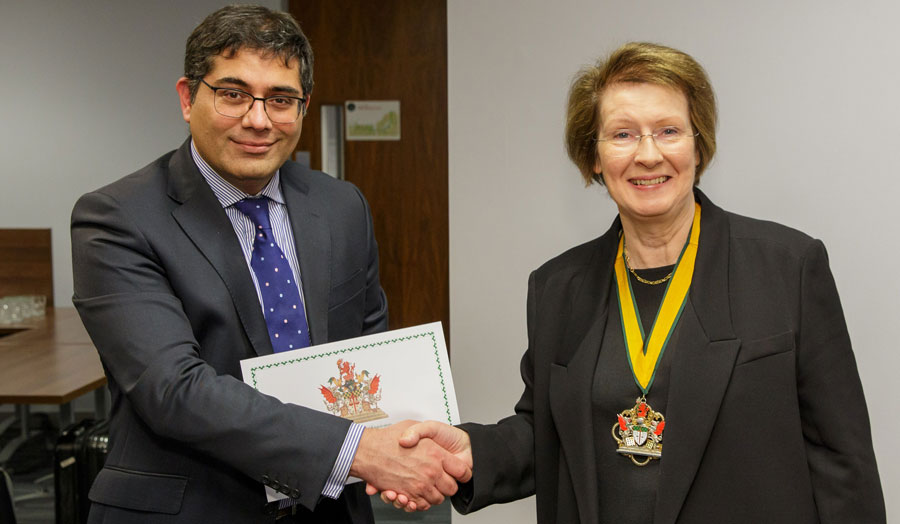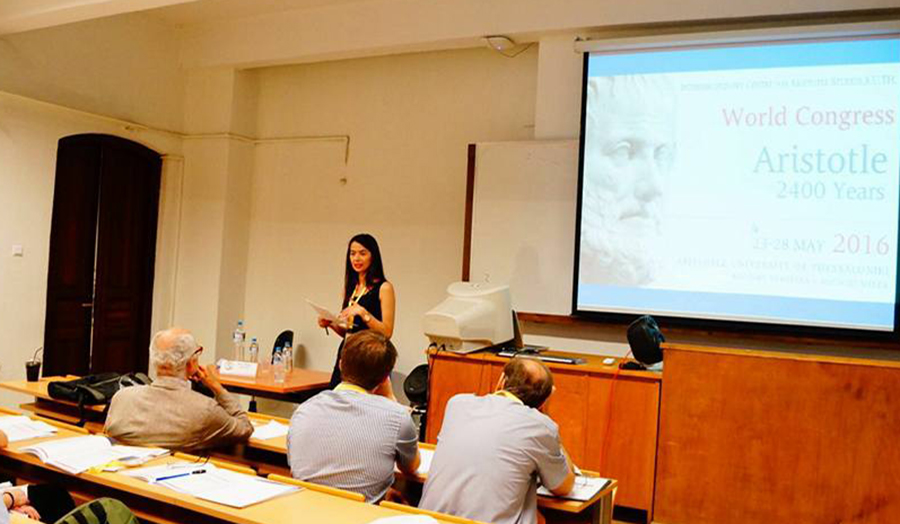Apply for this course
Please select when you would like to start:
Use the apply button to begin your application for the Human Rights Law LLM. Please note, the following PG Cert and PG Dip options are also available:
Apply for the PG Cert
UK students: UK full-time PG Cert Sep 2023 entry / UK part-time PG Cert Sep 2022 entry.
Overseas students: Overseas full-time PG Cert Sep 2023 entry / Overseas part-time PG Cert Sep 2023 entry.
Apply for the PG Dip
UK students: UK full-time PG Dip Jan 2023 entry / UK part-time PG Dip Jan 2023 entry / UK full-time PG Dip Sep 2023 entry / UK part-time PG Dip Sep 2023 entry.
Overseas students: Overseas full-time PG Dip Sep 2023 entry / Overseas part-time PG Dip Sep 2023 entry.
If you require a Student visa and wish to study on a part-time basis, please read our how to apply information for international students.
Why study this course?
Engage in theoretical and practical elements relating to human rights and social justice. You’ll develop the skills, knowledge and confidence to transform people’s lives for the better.
These courses are distance learning courses with some opportunity for online teaching activity but it is primarily independent distance learning. These courses give you the freedom to learn from wherever you are in the world. We offer this programme as either a LLM (Master of Laws), postgraduate diploma or postgraduate certificate.
Study in a way that suits you
These courses are distance learning courses with some opportunity for online teaching activity but it is primarily independent distance learning
Gain the qualification that works best for you
We offer this programme as either a LLM (Master of Laws), postgraduate diploma or postgraduate certificate
Take your career prospects to the next level
These courses are suitable if you’re a legal professional looking to specialise in human rights or a non-legal professional who needs an understanding of the human rights legal framework
Course modules
The modules listed below are for the academic year 2024/25 and represent the course modules at this time. Modules and module details (including, but not limited to, location and time) are subject to change over time.
Year modules
Law Dissertation
This module currently runs:summer studies - Wednesday evening
(alternative core, 60 credits)
This module is a supervised research-based dissertation in a relevant subject of the student’s own choice, subject to the approval of the Course Director.
The dissertation module comprises support and interactive ‘one to one’ supervision between students and supervisors. The minimal expectation for contact between student and supervisor is around 5 hours, but this can be greater depending on the individual dissertation and specific needs of the supervisor.
MODULE AIMS
On successful completion of this module, you will be able to:
- write a level 7 dissertation of up to 12,000 words in length.
- demonstrate a grounded and evidenced understanding of appropriate research questions, materials and examples suitable for writing a dissertation in a legal area.
- employ appropriate techniques for information gathering, research and critical analysis of leading legal questions.
- adopt a structured approach to the production of a sustained and critical piece of academic research of between 10,000 to 12,000 words on a law related subject.
- practise the fundamental academic and professional skills necessary for practical and effective postgraduate study of law.
Law Experiential Learning Project
This module currently runs:spring semester - Wednesday evening
summer studies - Wednesday evening
(alternative core, 60 credits)
This module provides you with the opportunity to showcase your professional skills in the execution of law-related tasks and experiential learning. When executing legal tasks, successful practitioners are able critically to evaluate law-related matters from an elevated perspective and are able to draw upon a varied knowledge base to assist in the development of strategy, new ideas, recommendations and solutions that add value to their organisation. Furthermore, successful legal practitioners draw upon a wide range of knowledge to help shape their own behaviour, character and identity. By critically reflecting on their experiences in work, they are able to develop an acute awareness of their own capabilities and skills, and have the ability to understand how they personally add value to an organisation. It is the application of knowledge and utilisation of professional skills that is explored in this module.
The first week of the year long programme will be dedicated to the discussion of various aspects of the work placement. This will lead to the production of a substantial report that helps to investigates specific legal issues within an organisation. This is a significant independent project, where you determine the subjects to be investigated and the methodology to be followed. Your project is an ideal opportunity to seek out and draw upon a wide range of knowledge, and for you to demonstrate how this underpins any final conclusions and recommendations. Your project will help you demonstrate your ability to think and act independently when executing a complex and challenging task.
The remaining period is dedicated to experiential learning in a work placement or project with an employer, which you will have secured during your time on programme. This practical experience will allow you to explore and test your own professional competence in a specific working environment. You will maintain a Professional Development portfolio of your experiences and will, ultimately, be able to articulate your understanding of how you personally add value in a professional legal context. Again, you will be expected to draw on a wide range of knowledge to help evaluate and explain your experiences.
Module Aims
On successful completion of this module, you will be able to:
- carry-out an in-depth project where you can integrate the legal knowledge and professional skills you have gained throughout your programme;
- identify and utilise different types of legal knowledge to influence your thinking or action;
- develop robust legal research skills and an ability to formulate new ideas and solutions through the analysis of primary and/or secondary data;
- explore your own skills, character and identity within a professional environment and identify key attributes that will aid long-term success in your chosen career field;
- develop good reflective practice, ensuring models and concepts can be used effectively in the critical evaluation of your performance; and
- integrate knowledge, experience and reflective practice to continually develop your professional skills and competence.
Civil Liberties
This module currently runs:autumn semester - Tuesday evening
(option, 20 credits)
Movements such as Extinction Rebellion provide a timely reminder of civil liberties and human rights and variations within jurisdictions around the world. The Civil Liberties module introduces students to key principles relating to civil liberties. The module provides a clear, intricate and topical consideration of the law relating to civil liberties, including reference to the Human Rights Act 1998 and the European Convention on Human Rights.
Students on this module will develop a comprehensive understanding of the legal issues attached to civil liberties. It introduces and builds up critical understanding of the legal concepts which govern individual and collective rights and responsibilities, including the constraints the state may place on the citizen’s exercise of his or her human rights. Topical issues will be discussed including individual rights and freedoms, the relationship between the individual and the state, freedom of expression, the right to demonstrate, the constraints that may be imposed on individuals’ human rights by the state and how the social and political conflicts and tensions which are intrinsic to the relationship of the individual and the State influences policy, decision-making and legislation.
The civil liberties legal framework can have a significant impact from a social, political and commercial context and this module explores these issues as required. The human rights themes and concepts will be further developed in other modules such as the Human Rights in Europe and International Human Rights.
MODULES AIMS
On successful completion of this module, you will be able to:
- understand the complexities surrounding civil liberties;
- understand the scope and nature of civil liberties and human rights;
- understand the difficulties facing jurisdictional based liberties and to develop an understanding of the legal framework, protection and enforcement mechanisms;
- have the opportunity to apply knowledge through a series of practical exercises;
- understand the scope of civil liberties within the wider political and socio-economic context;
- awareness of contemporary issues relating to civil liberties;
- develop their ability to construct legal arguments.
Environmental Law and Human Rights
This module currently runs:spring semester - Tuesday evening
(option, 20 credits)
This module examines the key principles and topical aspects of environmental law within the context of human rights, ethics and social justice.
Parallels can often be drawn between the impact of key environmental concerns (such as climate change, pollution, deforestation and food shortages), with issues of equity and social justice in terms of certain groups within society who are disproportionately affected (e.g. cultural and geographical).
Students taking this module will explore the relationship between human rights and environmental law and the extent to which environmental issues give rise to inalienable human rights. These concepts and environmental law aspects will be considered from a North-South context as well as a domestic, regional and international perspective.
MODULE AIMS
On successful completion of this module, you will be able to:
- appreciate the relationship between environmental law and human rights;
- understand the framework of environmental law, principles and policy that shape the subject;
- understand and appreciate the political and socio-economic impact on environmental concepts;
- critically analyse the scope and nature of key environmental issues as they relate to issues of human rights and social justice;
- understand the challenges of implementation and enforcement;
- have the opportunity to apply knowledge through a series of practical exercises;
- critically analyses the scope of human rights within the wider political and socio-economic context;
- awareness of contemporary issues relating to human rights and the criminal justice system;
- develop their ability to construct legal arguments.
Human Rights and Criminal Justice
This module currently runs:spring semester - Tuesday evening
(option, 20 credits)
The relationship between the criminal justice system and human rights is well established. The processes and legal framework highlight the protection afforded to suspects and offenders both within the context of criminal procedural rules and established human rights principles.
Students taking this module will examine the relationship between the two aspects and the challenges of finding the balance between the protection of society from crime; and the protection of the human rights of the suspects and perpetrators and the right to a fair trial. The module will provide a critical review of a range of criminal procedural aspects in relation to key human rights concepts including arrest powers, right to freedom from torture and inhuman and degrading treatment, false imprisonment and qualified rights.
Contemporary topics reflecting current issues in the criminal justice system and human rights such as the Police and Crime Bill will be discussed.
MODULE AIMS
On successful completion of this module, you will be able to:
- appreciate the connection between the criminal justice system and human rights;
- understand the framework of Law of the European Union and international law as it relates to human rights;
- critically analyse the scope and nature of social inequalities within the justice system;
- understand the challenges of implementation and enforcement
- have the opportunity to apply knowledge through a series of practical exercises;
- critically analyses the scope of human rights within the wider political and socio-economic context;
- awareness of contemporary issues relating to human rights and the criminal justice system;
- develop your ability to construct legal arguments.
Human Rights in Europe
This module currently runs:autumn semester - Tuesday evening
(option, 20 credits)
The Human Rights in Europe module explores the development of the principles and legal framework of human rights in Europe with particular emphasis on the 1950 European Convention on Human Rights and Fundamental Freedoms (ECHR) and its enforcement within Europe at regional and domestic level.
Students on this module will develop a comprehensive understanding of the key aspects of the ECHR including, freedom of expression, thought, religion, the right to a private life and principles relating to discrimination. Case law and the impact of the Court of European Human Rights will also be considered.
Topical issues will be discussed using contemporary issues where relevant to reflect on the recognition and implementation of human rights in European and challenges to the principles externally and internally.
A detailed consideration of the international human rights and criminal justice will be explored within other modules.
MODULE AIMS
On successful completion of this module, you will be able to:
- appreciate the historical context of human rights in Europe;
- understand the framework of Law of the European Union and international law as it relates to human rights;
- understand and appreciate the role of international organisations in the development of international human rights;
- critically analyse the scope and nature of European human rights laws and conventions;
- understand the challenges of implementation and enforcement
- have the opportunity to apply knowledge through a series of practical exercises;
- critically analyses the scope of human rights within the wider political and socio-economic context;
- develop your ability to construct legal arguments.
International Human Rights
This module currently runs:autumn semester - Tuesday evening
(option, 20 credits)
History, and the history of the last hundred years in particular, has laid bare the fact that not all humans have universally enjoyed human rights. Where these rights exist, the recognition and enforcement of these rights are often closely linked with, and affected by, political and economic considerations both within sovereign states and between them.
International human rights have been shaped by institutions including the United Nations, supported by the evolution of a legal framework of treaties and conventions to identify and protect the rights of all people.
The International Human Rights Law module introduces students to key principles of international human rights and the implementation of these rights through international organisations and principles of public international law.
Topical issues will be discussed using contemporary issues where relevant, to reflect on the recognition and implementation of international human rights including individual rights and freedoms, the relationship between the individual and the state.
A detailed consideration of the European approach to human rights through the European Convention on Human Rights and the Human Rights Act 1998, as well as the impact of war, will be considered in other modules on the course (Human Rights in Europe; Public International Humanitarian Law and Human Rights and Criminal Justice).
MODULE AIMS
Students on this module will develop a comprehensive understanding of the legal issues attached to international human rights. This includes the Declaration on Human Rights (DHR) and Covenants (civil land political rights, economic, social and cultural rights), international and regional frameworks such as the African Charter on Human and People’s Rights, the Arab Charter on Human Rights and a consideration of the role of international organisations in the implementation of human rights at international level.
On successful completion of this module, you will be able to:
- appreciate the historical context of international human rights;
- understand the framework of international law as it relates to human rights;
- understand and appreciate the role of international organisations in the development of international human rights;
- critically analyse the scope and nature of internal human rights laws and conventions;
- understand the challenges of implementation and enforcement of international human rights law and principles;
- have the opportunity to apply knowledge through a series of practical exercises;
- critically analyses the scope of human rights within the wider political and socio-economic context;
- awareness of contemporary issues relating to public international and human rights law;
- develop their ability to construct legal arguments.
Public International and Humanitarian Law
This module currently runs:spring semester - Tuesday evening
(option, 20 credits)
Historically, warfare has always been subject to customs and principles. International humanitarian law seeks to limit the effect of war and conflict and to set the parameters for engagement as they impact on participants and non-participants of conflict. As a branch of public international law, international humanitarian law involves two broad areas, namely the protection of people no longer taking part in fighting and secondly, restrictions imposed on the methods of warfare, weapons of warfare and military tactics.
Students taking this module will develop a comprehensive understanding of the principles and legal issues attached to public international humanitarian law. This includes the Geneva Convention 1949 and other conventions including the Conventional Weapons Convention, Chemical Weapons Convention and laws relating to anti-personnel mines. Students will also gain an understanding of the categories of warfare and the parties affected by conflict.
Topical issues will be discussed using contemporary issues where relevant to reflect on the recognition and implementation of public international humanitarian law.
MODULE AIMS
On successful completion of this module, you will be able to:
- appreciate the historical context of international humanitarian law and distinction from human rights law;
- understand the framework of international law as it relates to humanitarian law;
- understand and appreciate the role of international organisations in the development of international humanitarian law and principles;
- critically analyse the scope and nature of the legal framework of international humanitarian law including the Geneva Convention and related laws and conventions;
- understand the challenges of implementation and enforcement of international humanitarian law;
- have the opportunity to apply knowledge through a series of practical exercises;
- critically analyse the scope of human rights within the wider political, religious and socio-economic context.
Research Methods for Lawyers
This module currently runs:autumn semester - Wednesday evening
spring semester - Wednesday evening
(option, 20 credits)
Research Methods for Lawyers, which is offered in both the autumn and spring semesters, provides a detailed understanding of how to prepare for writing a dissertation on a legal topic.
Students will be given practical guidance on how to conduct advanced legal research from both primary and secondary sources; how to choose a viable research topic; how to write a research proposal; how to conduct a literature review; and how to choose the right methods and methodology for the dissertation.
In doing this, the students will be preparing themselves for conducting legal research in both an academic and professional field, as well as for writing a research dissertation at Level 7.
MODULE AIMS
On successful completion of this module, you will have:
- acquired advanced knowledge of how to conduct independent legal research and how to organise, assemble and synthesise large amounts of legal material in order to identify legal problems.
- developed several key transferable skills, including independent research, critical analysis and cogent academic writing in the context of writing a research dissertation, emphasising the use of primary and secondary sources.
- enhanced your employability by the development both of these skills, and by the practice of written communication activities (including summative) and oral communication activities (formative only)
The English Legal System and Commercial Law
This module currently runs:autumn semester - Wednesday evening
spring semester - Wednesday evening
(option, 20 credits)
You may be coming to this course with no prior knowledge of the components of the English legal system, or only a vague idea of how litigation and alternative dispute resolution operates within that system. Whilst it is possible to study a specific area of law without this broader knowledge, you will get a great deal more out of the course if you can contextualise it within the framework of legal practice, especially insofar as it relates to civil law and procedure.
This module will introduce you to the workings of the English Legal System in its historical, contemporary and international context. You will also have an introduction to aspects of commercial law, including contract and tort.
It includes the study of the sources of law; the law-making process; the institutional and court structure; and basic issues of civil procedure within the English Legal system.
You will also benefit from an introduction to legal method, which will introduce you to methods of legal research, analysis and logic; to a practical knowledge of the legal profession and careers; and to issues of judicial ethics.
MODULE AIMS
On successful completion of this module, you will be able to do the following:
- Reflect on the legal system in the context of contemporary legal issues.
- Demonstrate a working knowledge of legal language, sources of English law and legal procedure;
- Read and understand primary and secondary sources of law (paper based and electronic);
- Practise the fundamental academic and professional skills necessary for practical and effective postgraduate study of law.




















